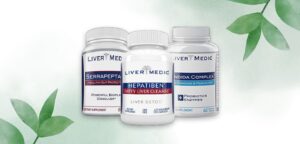
Have you wondered why everyone that goes on a diet shortly thereafter gains the weight back—or why people have given up on weight loss pills? The underlining cause is the same, but the problem hasn’t been addressed.
It’s is no coincidence that states with higher poverty and diets rich in processed foods and harmful fats report the highest incidence in weight gains.
Obesity is an epidemic in the United States that affects more than 30% of Americans in Southern States while increasing to 25% in most other areas of the country, costing an estimated $147 Billion each year.
The Real Cause
Typical food consumption in America is high in the following combinations; sugar, caffeine, harmful fats, antibiotics, preservatives, pesticides, GMOs and hormones. These are all considered toxins in your body, especially the sugar.
In fact, sugar is the major reason for the build-up of candida, which displaces the good bacteria. Why are we discussing the digestive tract? What does that have to do with obesity? Everything!
The Digestive Tract Has a Very Complex Function as it Must Simultaneously Does Two Operations:
- Create specific enzymes to breakdown directed food into smaller particles used in the body.
- Selectively allow nutrients through without passing the harmful invaders; virus, bacteria and toxins.
Our digestive tract is not alone in this work; it has between 3-5 pounds of bacteria in the gut to help. At present, however, our new American diet promotes rapid growth of harmful bacteria.
Leaky Gut Progression
When the increase in harmful bacteria and yeast (candida) within the intestine reaches a tipping point, the intestinal wall is breached. This breach allows food particles to pass through the intestine wall and the immune system becomes overwhelmed. The liver, which receives 70% of its blood flow from the intestine, is charged with detoxifying the blood. If the necessary chemicals (i.e. Glutathione, NAC, Tocotrienols) are in short supply the liver simply shuttles the toxins into fat cells to keep them from invading the rest of the body. These fat cells are stored in the liver and elsewhere throughout the body.
Why Your Diet Doesn’t Work
Why Your Diet Doesn’t Work
Weight loss pills are mostly composed of diuretics. There will be terrific results in the short term because the body is composed mainly of water. Starving the body of water puts a terrible burden on the kidneys but doesn’t address the fat cell build-up. As soon as this diet ends water equilibrium produces weight gain and the kidneys have paid the price. Not al weight loss pills are diuretics however, and there are even a few that can be an important resource for weight loss.
Other more enlightened diets will solve most of the harmful eating habits especially raw food diets by reducing sugar, carbs, caffeine, and so on. While this reduces energy consumption in the immune system and toxins, it also initiates the engine to breakdown the old fat cells it stored. Without proper supplements that support the liver, liberated toxins circulate through the body and shuttle back into fat cells. Weight returns and these free-floating toxins have done damage to body tissues.
This is not to diminish the contribution family genetics has on this process or the emotional triggers people have regarding over-eating. Those factors have always existed, but what is significantly different is the massive increase in toxins released into the environment over the last fifty years that contributed to today’s declining health in the population.
What Works
- Following a raw diet will reduce the energy the body dedicates to breaking down food that’s then redirected to fat metabolism.
- Allowing the body’s system 12 hours per day of not eating to repair itself.
- Eliminating sugars, carbs, caffeine, and alcohol and adding organic foods.
- Drinking lots of water.
- Supplementing the diet with protective liver ingredients, digestive enzymes and a biofilm dissolver like Serrapeptase.
liver supplements
Nature provides us with the solution. Studies show that Silybin (an active compound in milk thistle) SAMe, Vitamin E (specifically highly concentrated tocotrienols,) NAC, Phosphatidylcholine and Glutathione work well when regularly applied. The success of these natural ingredients relies on rapid replenishment of Glutathione, a critically important liver antioxidant.
Extracts from milk thistle have a long history of protecting the liver. Modern scientific research has rediscovered the benefits of this herbal remedy. One very effective combination of silymarin, Vitamin E and Phosphatidylcholine improves insulin sensitivity, while reversing damaged liver cells, reducing oxidative stress, and improving Glutathione levels in the liver.
N-acetyl cysteine (NAC) is a sulfur-rich compound used primarily to neutralize the damaging effects of aspirin on the liver. It rapidly restores Glutathione. A recent animal study finds it prevents NAFLD in a liver disease diet.
Similarly, SAMe had been found to increase Glutathione levels in humans with Non-Alcohol Fatty Liver Disease.
Very few if any products on the market today contain all these ingredients and they are very expensive when purchased individually. To address this Liver Medic™ formulated Hepatiben™ to make fighting this battle easier, more effective and less expensive than the alternatives.
While we have discussed the mechanism and treatment for the liver, we can’t ignore the source of the problem. A healthy diet that promotes a healthy gut is critically important to ensuring that fatty liver disease does not return.
Often missed in efforts to restore healthy flora is the removal of biofilm, which is a frequent obstacle in improving gut health. Serrapeptase is nature’s most powerful weapon in this fight. Our enteric-coated Serrapeptase breaks apart biofilm to remove viruses, parasites and other harmful organisms. In combination with Candida Complex, is a great way to remove the bad actors and get healthy again.
Puchasing Options
Liver Cleanse
references
- https://gis.cdc.gov/grasp/diabetes/DiabetesAtlas.html
- https://obesity.bodyecology.com/leaky-gut
- Kwon do Y, Jung YS, Kim SJ, Park HK, Park JH, Kim YC. Impaired sulfur-amino acid metabolism and oxidative stress in nonalcoholic fatty liver are alleviated by betaine supplementation in rats. Journal of Nutrition. 2009 Jan;139(1):63-8.
- Caballero F, Fernandez A, Matias N, et al. Specific contribution of methionine and choline in nutritional nonalcoholic steatohepatitis: impact on mitochondrial S-adenosyl-L-methionine and glutathione. Journal of Biological Chemistry. 2010 Jun 11;285(24):18528
- Loguercio C, Federico A, Trappoliere M, et al. The effect of a silybin-vitamin E-phospholipid complex on nonalcoholic fatty liver disease: a pilot study. Digestive Disease & Sciences. 2007 Sep;52(9):2387-95.
- Serviddio G, Bellanti F, Giudetti AM, et al. A silybin-phospholipid complex prevents mitochondrial dysfunction in a rodent model of nonalcoholic steatohepatitis. Journal of Pharmacology and Experimental Therapeutics. 2010 Mar;332(3):922-32.
- Baumgardner JN, Shankar K, Hennings L, Albano E, Badger TM, Ronis MJ. N-acetylcysteine attenuates progression of liver pathology in a rat model of nonalcoholic steatohepatitis. Journal of Nutrition. 2008 Oct;138(10):1872-9.
- Vendemiale G, Altomare E, Trizio T, et al. Effects of oral S-adenosyl-L-methionine on hepatic glutathione in patients with liver disease. Scandanavian Journal of Gastroenterology. 1989 May;24(4):407-15
additional readings

Harnessing the Power of Fitness in Your Journey Toward Addiction Recovery
Written by: Susan Treadway of Rehab Holistics Embarking on the path to addiction recovery unveils a myriad of challenges and opportunities. One potent yet often underestimated ally in this journey is fitness. Through the transformative power of physical activity, you

Is it Possible to Reverse Fatty Liver with Natural Remedies?
Is it possible to reverse fatty liver through natural remedies? This is a common question, especially as fatty liver disease becomes increasingly prevalent. The liver, one of the most vital organs in the body, plays a key role in detoxifying,
7 Best Liver Detox Remedies
Are you looking to revitalize your liver health but overwhelmed by the myriad of options available? Wondering if liver detox remedies are really effective, especially when you are already taking supplements? Let’s delve into the world of best liver detoxification
Do Liver Detox Supplements Help Fatty Liver?
Have you ever wondered if liver detox supplements can truly make a difference for fatty liver? With the rise in health consciousness, many turn to supplements for various health concerns. But do they really work when it comes to combating

Which is the Best Liver Supplement for Fatty Liver?
Are you experiencing fatigue, abdominal discomfort, or unexplained weight gain? These could be signs of a fatty liver, a condition affecting millions worldwide. With lifestyles often characterized by poor dietary choices and sedentary habits, the prevalence of fatty liver disease

How Can I Detox my Liver in 7 Days?
Have you ever felt like your body needs a reset? Perhaps you are experiencing low energy levels, bloating, or just a general sense of malaise. If so, your liver might be trying to tell you something. Could a 7-day liver